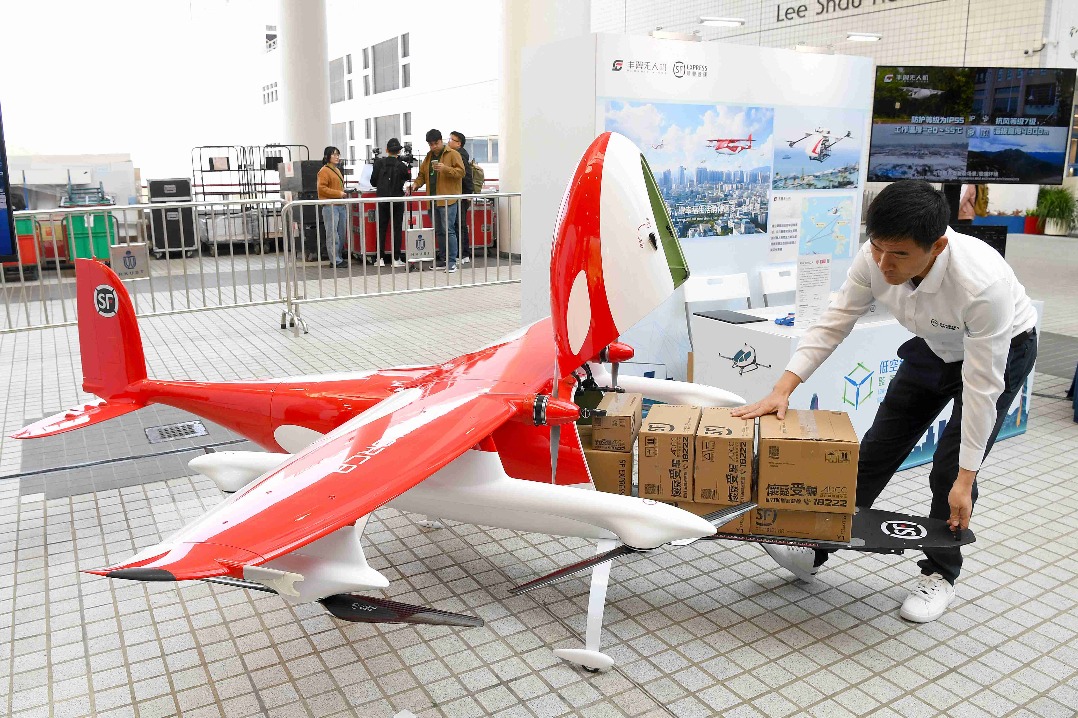Experts: DEPA application to boost economy


China's formal application to join the Digital Economy Partnership Agreement, or DEPA, highlights the nation's firm determination to further expand opening-up, promote international cooperation in the digital economy and facilitate cross-border digital trade, experts said.
Commerce Minister Wang Wentao submitted the application on Monday via a letter to Damien O'Connor, minister for trade and export growth of New Zealand. The nation is the depositary for the DEPA, according to the Ministry of Commerce.
The ministry said the application is in accordance with the country's efforts to further deepen reform and expand high-level opening-up.
It will also help China strengthen cooperation with other DEPA members in the digital economy sector under the new development pattern, as well as promote innovation and sustainable development.
China will carry out follow-up work with DEPA members in line with related DEPA procedures, the ministry added.
The DEPA, signed in June 2020 by Chile, New Zealand and Singapore, is a new type of trade partnership agreement aimed at bolstering digital trade by regulating issues related to the digital economy, including digital inclusion, data flows and protection, and artificial intelligence.
President Xi Jinping announced China's decision on Saturday to apply to join the DEPA.
China attaches great importance to international cooperation on the digital economy and stands ready to work with all parties for the healthy and orderly development of the digital economy, Xi said while addressing the 16th Group of 20 Leaders' Summit via video link in Beijing.
Bai Ming, deputy director of the international market research department at the Chinese Academy of International Trade and Economic Cooperation, said: "China's digital economy has been growing rapidly in recent years, especially in the cross-border e-commerce sector. The application to join the DEPA is conducive to facilitating digital trade and improving China's discourse power in the global digital economy governance system."
Bai noted that there are currently no complete and unified international framework or rules in the digital economy, and it is an imperative task for countries to establish a unified set of rules under which digital trade could be carried out smoothly.
Global market consultancy IDC predicted that the digital economy will account for 62 percent of global gross domestic product by the end of 2023, taking the world into the digital economy era.
China is taking the lead in developing the digital economy, which has become the driving force for boosting the country's economic growth and upgrading traditional industries, said Wang Jian, a professor of international trade at the University of International Business and Economics in Beijing.
Wang said the DEPA establishes an innovative mechanism and enhances cooperation in digital trade issues, encompassing business and trade facilitation, which includes paperless trade, e-payments and e-invoicing, cooperation on emerging technologies such as AI and financial technology, personal information protection and cross-border data flows.
"The establishment of digital trade rules is of great significance in creating a favorable environment for companies to expand their digital business landscape across the globe," Wang added.
Robust growth
The country's digital economy was worth nearly $5.4 trillion last year, ranking second in the world. That represented year-on-year growth of 9.6 percent, the fastest in the world, according to a white paper released by the China Academy of Information and Communications Technology, a government think tank.
"The world is at a critical stage in forming unified rules for digital trade, and China's application to join the DEPA reflects its sincere willingness to coordinate and align rules together with other countries to seek a more effective and balanced development model for digital trade," said Zhou Mi, a senior researcher at the Chinese Academy of International Trade and Economic Cooperation.
China has been making remarkable progress in enhancing domestic laws and regulations regarding issues such as entitlement confirmation for data resources, hierarchical data classification and protection, cross-border data transfer and data security review, as well as in balancing the open utilization of data with privacy protection and public security, he said.
Liu Zhihua contributed to this story.





































